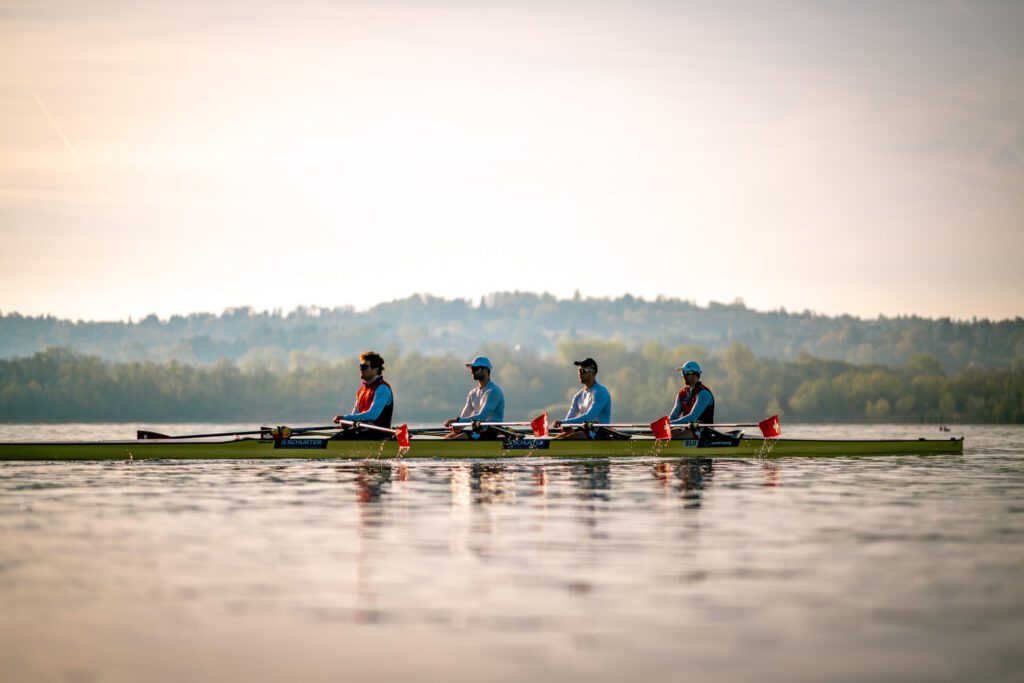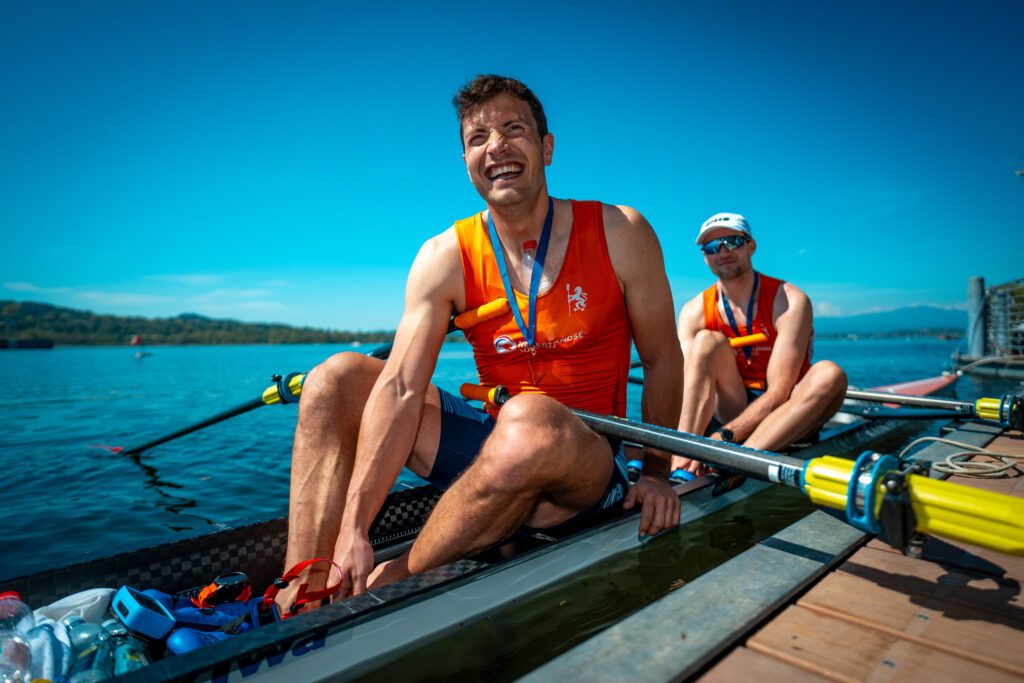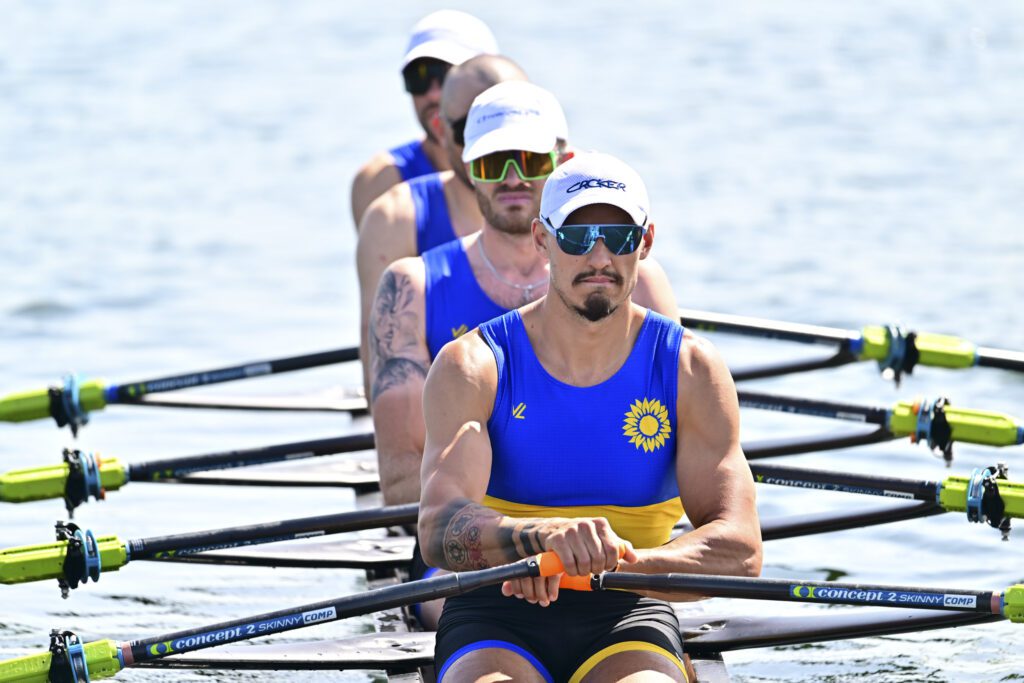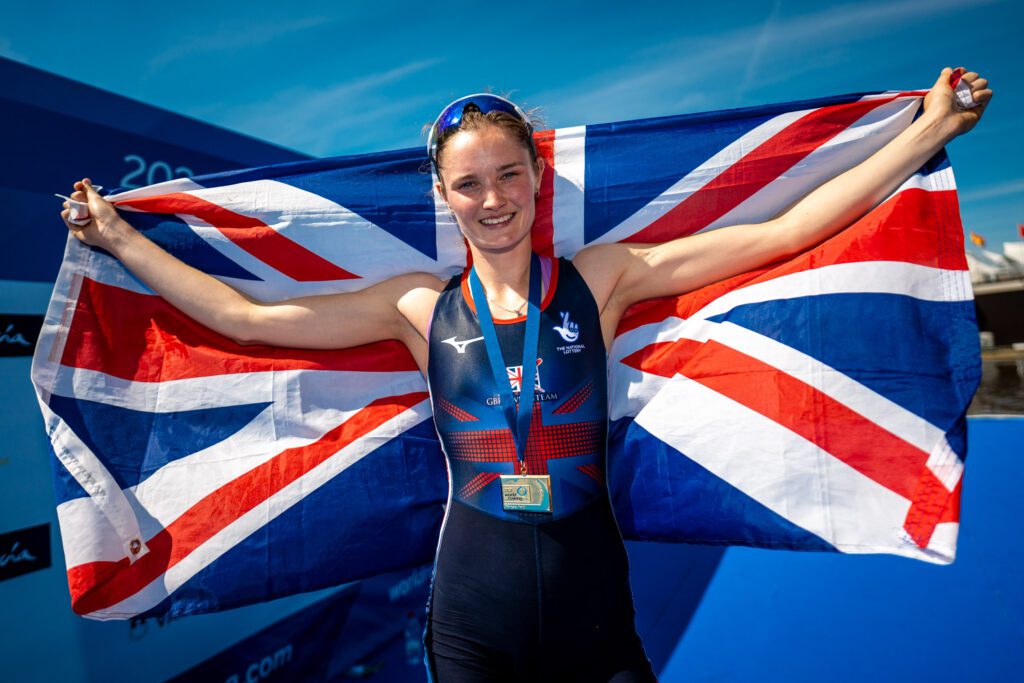As 24th March 2020 dawned and the Tokyo Olympics were put on hold for a year, the last casualty I expected of this global pandemic was the connection between one of the most successful Olympic coaches in history, and GB Rowing. Yet the link was severed — some would say abruptly — five months later on 20th August, when British Rowing issued an embargoed press release to say that Jürgen Grobler was finally retiring from the job, 11 days before the rowers return to training at their Caversham headquarters. Grobler had told his athletes and staff a few hours earlier.
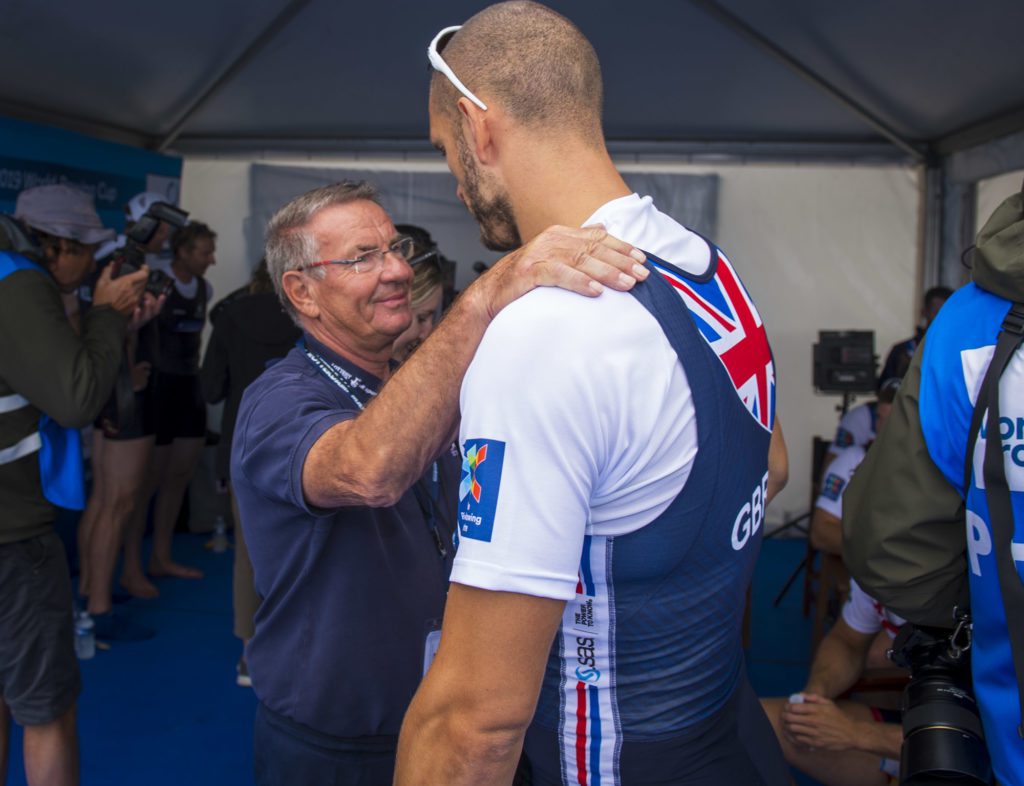
Photo Grobler with Mo Sbihi after the GB M8+ beat Germany in Rotterdam at World Rowing Cup III, 2019.
Credit Benedict Tufnell
GB Rowing has undergone a large number of changes since its triumphant Rio Olympics in 2016. First performance director Sir David Tanner stepped down in winter 2017, then women’s and lightweights’ chief coach Paul Thompson a year later. That allowed Grobler to become overall chief coach of the entire squad, a move which helped the 72-year-old to edge slightly away from the punishing grind of daily miles on the coaching bike, and played to his strategic strengths. Grobler is the ultimate planner: in the tactical game of rowing chess he is usually ten moves ahead of his rivals and certainly of the athletes. Whether or not you agreed with his decisions he always commanded respect from rowers and coaches alike, perhaps because of his omniscient attention to detail combined with a confidence that comes from knowing exactly where you are headed. Spontaneity isn’t a word used much about Grobler.
Which makes this move look ever so slightly odd, even though there are many good reasons below the surface. GB Rowing’s coaches are usually contracted for a full year post-Olympics (to aid continuity and forward planning), so Grobler was always expected to do one more year after that glorious Rio summer when he turned 70 a fortnight before his men’s four and eight pulled off their double gold. He told Row360 at the time, “I’ll definitely carry on, but if it’s four years I don’t know. I’ve done now 46 years as a front-line coach — it’s a long, long, long time.”
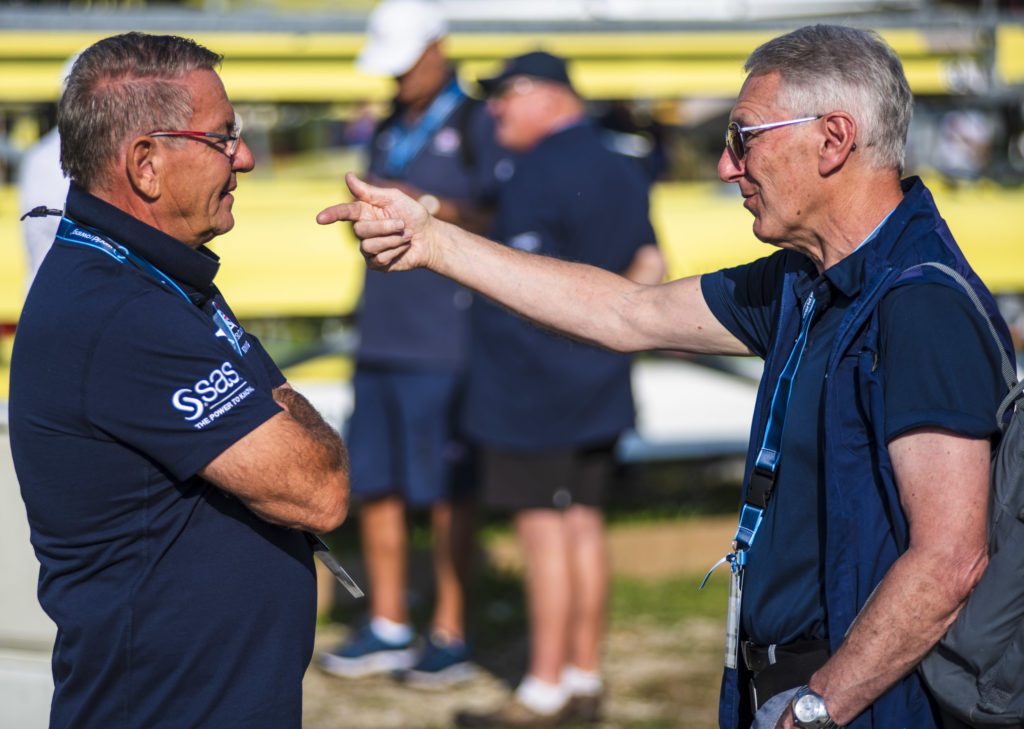
Photo Grobler with Sir David Tanner. 2019 World Rowing Championships, Linz, Austria
Credit Benedict Tufnell
As an onlooker I thought his retirement would come in 2017, particularly since the large number of athletes moving on left the squad struggling to hit previous heights, their only gold coming from para-rowing. But Grobler’s appetite for the work was clearly undimmed and it was patently in GB Rowing’s interests to encourage him to stay when Tanner and then Thompson left. The prospect of the overall coaching position obviously appealed to him, allowing him to reduce the physical impact of coaching from a bike while still using his top skills. And by then Tokyo 2020 was less than 2 years away – a much easier commitment to make.
But the pandemic, and lockdown last March, threw a global spanner in those works. With Caversham falling silent, worldwide rowing events cancelled in one fell swoop and athletes banished to train in their homes and gardens without any prospect of putting water racing skills to the test, the chief coach’s job changed substantially. There has been nothing but uncertainty and an inability to plan — except a far-away Olympic Games which may yet be completely cancelled — for months. Let’s face it, we’ll need a very good treatment or a worldwide vaccine if the Tokyo Games are going to happen next summer. And unless we know about that vaccine/treatment by January 2021, if not earlier, the Games will be wiped off the calendar to avoid risking billions of wasted money.
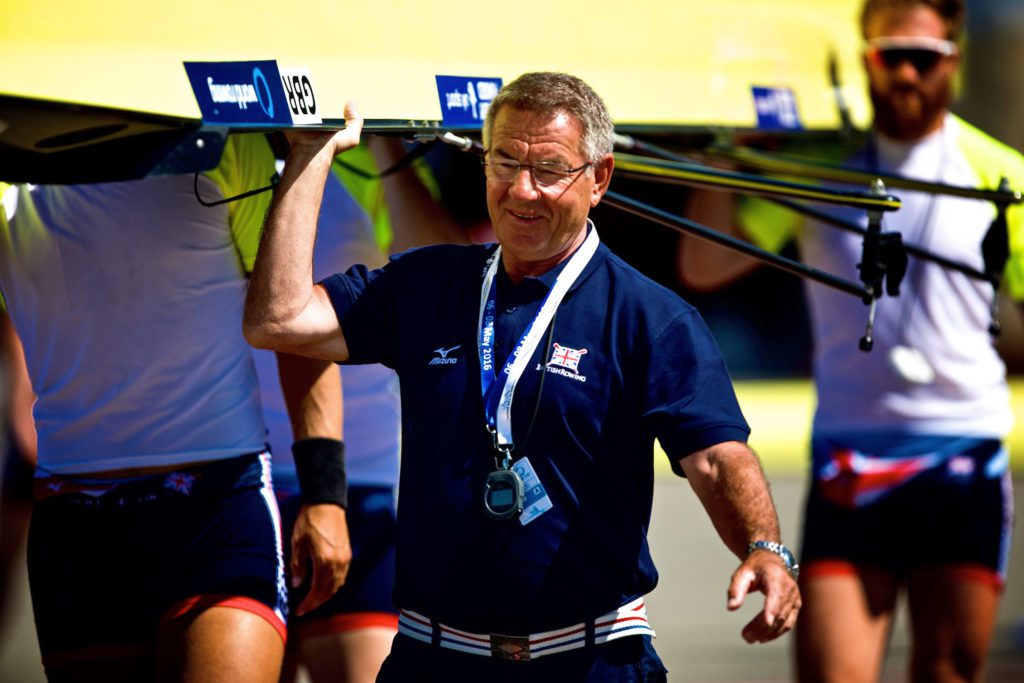
Credit Naomi Baker
All this was pretty soul-destroying for the rowers but at least as bad for their coaches. But it did force a change in pace. Grobler spent most of the last five months in Switzerland with family, a foretaste of what life would be like without the addictive routine of daily coaching and planning for competition. Perhaps he didn’t find semi-retirement as depressing as he expected. And for a German-born naturalised Briton it must have been a relief to be in a country not constantly hearing bad news about Brexit….
On the rowing front we must face facts: the British results of the previous three years have not been encouraging. In Olympic events the team’s world championship medal tallies of two silver three bronze (2017), two bronze (2018) and three bronze (2019) are dismal compared with the glory days of the previous few Olympiads, and the worst for decades. The chance of reaching UK Sport’s original Tokyo target of six medals was vanishingly small despite an extra year to prepare, the possibility of reaching even a reduced target was looking difficult. It is well known that Grobler’s athletes go into the Games believing that they can win, that confidence fuelling success after success since his first years as a coach. But the Grobler record was likely to be shattered this time. Tokyo, if it happens at all, is going to be a ‘rebuilding’ Olympics for the British rowers, a chance not to win fistfuls of medals but to lay some proper foundations for Paris in 2024, which will have a shortened training and preparation period. It’s not quite the sign-off a coaching legend envisages.
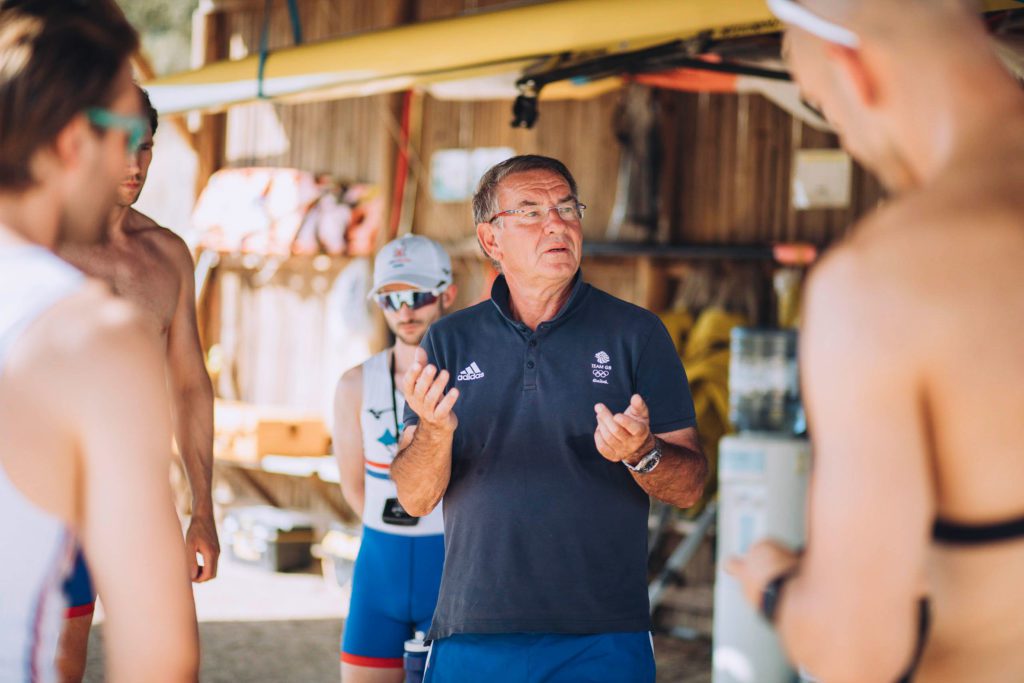
Photo Grobler with his athletes during training at the GB Rowing HQ in Caversham, UK
Credit Nick Middleton
Apart from all that, Grobler writes programmes which are virtually guaranteed to get athletes to their peak physical fitness. He works in four-year cycles aimed squarely at the biggest Games in the world. The disruption of the first year of the Paris Olympiad being also the last year of the Tokyo quadrennial will be giving all coaches headaches, let alone those who enjoy control and planning. They can’t avoid the coming year requiring a difficult two-sided strategy – nations who ignore the need to recruit and train up for 2024 in favour of focusing solely on their 2021 squad may save short-term resources but will pay the price of poor results in the long run. Whoever leads teams next year will need to have a very long eye on the future as well as the present. And Grobler is never one to avoid facing tough facts. His statement in the GB Rowing press release said, “This has been a hard and difficult decision but British Rowing has big plans for Paris 2024 and we want to organise it now to give the GB Rowing Team the best chance of success. I can’t commit for the next four years so I have resigned in order to let everything start now.” He may be right: it will be easier for the team to have someone else navigate this tricky period before a new appointment.
With his retirement GB Rowing has lost the lynchpin of their men’s sweep and latterly sculling success for many years, a talisman coach whose taciturn reassurance persuaded athletes that they could work magic on the water. But we should not blame him for the decision. During the 2020 lockdown Grobler reached the milestone of 50 years coaching rowing. It should have been at least an exciting Olympic end to his stellar career, if not the blaze of glory a narrator would prefer. A virus one-ten-thousandth of a millimetre across put paid to his plans, and in typical style he has now stood back, looked at the situation and reassessed.
Time for a change, for him and the team.
Good luck to them both.
